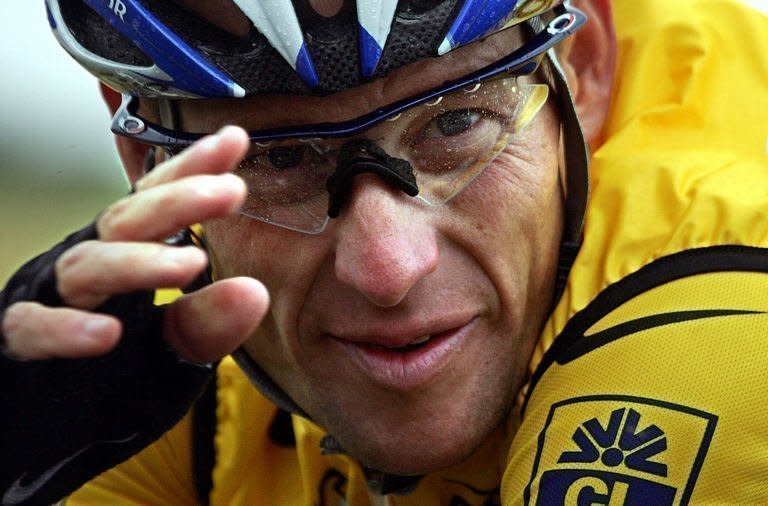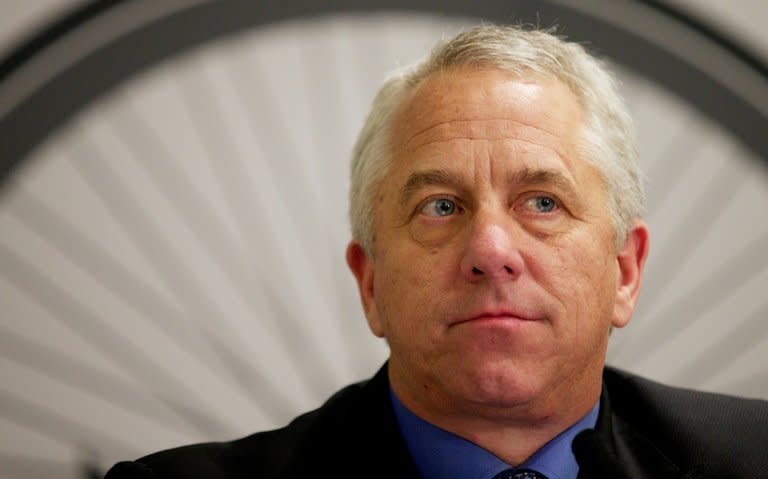Armstrong urged to address his reputation as a bully
A confession of doping isn't all Lance Armstrong needs to offer in his anticipated television interview with Oprah Winfrey, according to those he attacked over the years for doubting him. Whether Armstrong can counter his image as a cheater who bullied his doubters into silence could be a key factor in his rehabilitation in the public's eyes. Daniel Borochoff, founder and president of charity watchdog CharityWatch, said potential donors to the Livestrong cancer foundation that Armstrong started were turned off not only by the fact of his doping but also by his efforts to impugn his accusers. "Some of his attacks (were) against people who were just telling the truth about what was going on with the doping -- if he's admitting that now, then that's going to be hard for people to come to grips with," Borochoff said. Among those targeted as Armstrong enemies was Betsy Andreu, wife of his former team-mate Frankie Andreu. She says Armstrong painted her as "vindictive, bitter, vengeful and jealous" when she testified in a legal proceeding that she heard Armstrong tell doctors treating his cancer in 1996 that he had used performance-enhancing drugs. "I would like for him to come out and admit the hospital incident did happen," Betsy Andreu told ESPN this week, after it was learned that Armstrong admitted to doping in his interview with Winfrey on Monday, which is set to air Thursday and Friday on her OWN cable channel and website. From Emma O'Reilly, an Irish massage therapist who testified to the US Anti-Doping Agency about drug use on Armstrong's team, to USADA chief Travis Tygart, no Armstrong accuser was let off. In the buildup to the Winfrey interview, Armstrong has offered apologies to Livestrong staff and reportedly to various figures in cycling and journalists who have crossed swords with him in the past. Some have already demanded more than words, however. Insurance company SCA, sued by Armstrong when they withheld a $5 million bonus after his sixth Tour win in 2004 because of doping allegations, now wants that money back. The Sunday Times newspaper is also suing for the return of a settlement that Armstrong gained in a libel case after in 2004 after the British newspaper printed doping allegations. Former team-mate Floyd Landis, who accused Armstrong after himself losing his 2006 Tour de France title for doping, was dismissed as a cheater with "zero credibility". Former team-mate Tyler Hamilton told authorities he felt threatened by Armstrong after Hamilton agreed to testify before a US grand jury convened to probe doping in cycling, with Armstrong a primary focus. At the time Hamilton had gone public with accusations against Armstrong in an interview on CBS television's "60 Minutes". "Would you feel threatened if someone said to you, ‘We're going to destroy you on the witness stand and we're going to make your life a living hell?'" Hamilton lawyer Chris Manderson said. Three-time Tour de France winner Greg LeMond, an Armstrong critic who acknowledges that the problem of doping extends beyond his compatriot, said Armstrong's tactics were particularly damaging to the sport. "There's a major difference between a guy like Ivan Basso (who was banned for two years for doping) and Armstrong," LeMond said in 2010. "Basso doesn't threaten people! "When it comes to manipulating people, Armstrong is the undisputed champion."




